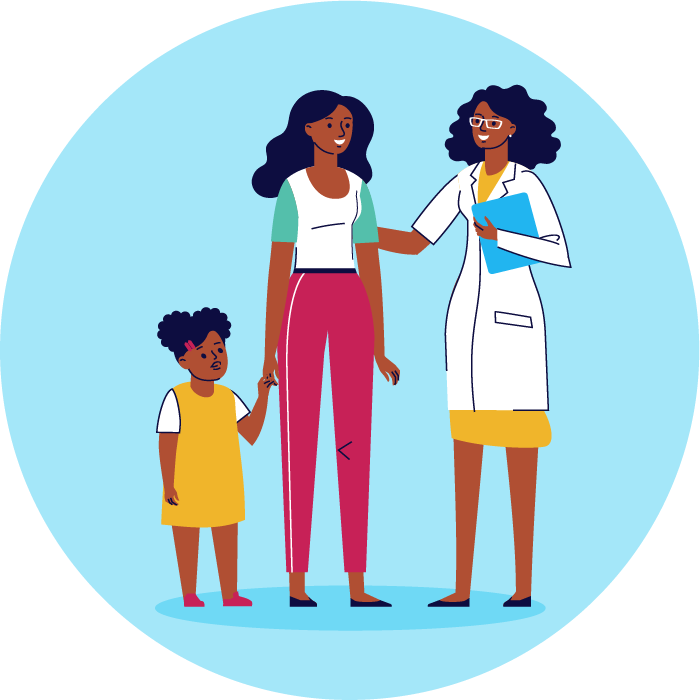Why Is There a Need to Rethink the Pediatric Care Delivery System?
Children and families require a health care system that serves their unique needs, prioritizes dignity, is trauma informed, and supports opportunities for lifelong health and well-being. While ensuring access to affordable, quality, and continuous health care coverage is critical, coverage alone is not enough — how care is delivered matters, too.
A Critical Need for Transformation

Renée Boynton-Jarrett, MD, ScD, Associate Professor of Pediatrics, Boston University School of Medicine; Director, Vital Village Network
What Are the Effects of an Inequitable Child Health System?
The current health system fails many children, particularly children from marginalized communities. Moreover, many children face social, environmental, and economic factors — such as food and housing insecurity — that impact their mental and physical well-being, and are often the result of systemic inequities.
The need for rethinking the current child health care system is clear:

Systemic & Structural Racism
Children of color are far likelier to experience poor health outcomes — such as complications from low-birth weight and predisposition to chronic diseases with prolonged exposure to stress hormones — due to systemic and structural racism.

Health-Related Social Needs
While medical care is important, it contributes only a small share to a person’s overall health, with health-related social needs — including food and housing insecurity — having significant negative impacts on health.

Provider Bias
Provider biases can lead to lower quality or differences in treatment plans. This can include, for example, less aggressive pain management for appendicitis in Black children than in white children.

Lack of Workforce Diversity
Fewer than 15% of pediatricians are Black, Latino, or Native American, yet about 40% of children in the U.S. are from these racial and ethnic groups. Patient-provider concordance impacts trust, health care utilization, and health outcomes.

Infant Mortality
The infant mortality rates for non-Hispanic Black infants and Native American infants are about two times that of non-Hispanic white infants. Late or no prenatal care received during pregnancy is a systemic part of this problem.
How Can Child Health Care Transformation Improve Child and Family Well-Being?
Innovators in the child health care field are reimagining traditional pediatric care delivery — which often focuses on well and sick visits — to a more holistic system of care that promotes upstream prevention, better connections to community supports that can address health-related social needs, and uses anti-racist, family-centered practices.
Following are resources that outline child health transformation strategies:

A Critical Role for Medicaid
Medicaid and the Child Health Insurance Program serve over 41 million children and more than half of all children of color. Child health care stakeholders can seek to maximize Medicaid opportunities that increase health equity and child health care accelerate transformation.
FACT SHEET • JANUARY 2023
Using an Anti-Racist, Family-Centered Focus to Improve Pediatric Care
Explains why child health care transformation is needed and offers three strategies to achieve it.
INFOGRAPHIC • JANUARY 2023
Transforming Child Health Care Through an Anti-Racist, Family-Centered Focus
Offers strategies for engaging with patients and families as partners to make pediatric care anti-racist and family-centered.
What Tools Are Available to Help Organizations Implement Child Health Care Transformation?
Explore the library on this resource center for an array of practical resources, lessons, and tools from organizations across the country that are championing child health care transformation:
See also resources for policymakers and payers to adopt financing and accountability levers that support transformation.








